In the intricate and demanding world of aerospace manufacturing, precision, reliability, and consistency are not just desirable—they’re mandatory. As aerospace components often function in high-pressure and extreme environments, there’s no room for error.
This is where an AS9100D Aerospace Machine Shop comes into play. But what does this certification mean, and why is it essential in the realm of aerospace machining? Let’s explore.
Understanding AS9100D
At its core, the AS9100D certification is a quality management system standard designed specifically for the aerospace industry. I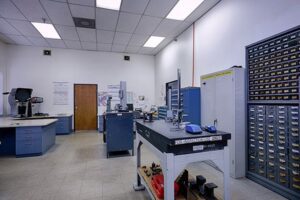 t encompasses the ISO 9001:2015 standard requirements with additional stringent aerospace sector-specific criteria. These enhancements cater to the high-risk nature and strict regulatory demands of aerospace engineering and manufacturing.
t encompasses the ISO 9001:2015 standard requirements with additional stringent aerospace sector-specific criteria. These enhancements cater to the high-risk nature and strict regulatory demands of aerospace engineering and manufacturing.
AS9100D ensures aerospace products are safe, prevent counterfeit parts, manage risks, and maintains consistent quality, meeting strict specifications. Only machine shops that adhere to these meticulous standards and maintain an ongoing commitment to quality assurance can claim this esteemed certification.
Key Features of AS9100D Aerospace Machine Shops
- Risk Management: AS9100D emphasizes a thorough understanding and mitigation of risks related to operational processes and product manufacturing. This not only assures better product quality but also ensures that any unforeseen issues can be addressed promptly without impacting the final product’s reliability.
- Continuous Improvement: The certification mandates a commitment to continuous improvement. This means an AS9100D-certified shop will always strive to better its processes, ensuring they’re at the forefront of technology and efficiency.
- Product Safety and Conformity: Aerospace components must operate flawlessly in critical situations. These shops are therefore required to maintain a rigorous focus on product safety and conformity to guarantee that every piece manufactured meets or exceeds industry standards.
- Counterfeit Parts Prevention: The aerospace industry is a prime target for counterfeit parts, which can jeopardize the safety and functionality of aerospace equipment. AS9100D shops must have robust systems in place to detect, prevent, and mitigate the impact of counterfeit parts.
- Feedback Loop: Regular feedback and periodic audits ensure that the processes remain compliant and that any room for improvement is promptly identified and addressed.
Benefits of Partnering with an AS9100D Certified Shop
For aerospace companies, partnering with an AS9100D certified machine shop offers several benefits:
- Reliability: You are assured that the machine shop follows rigorous industry standards, guaranteeing the components’ quality and safety.
- Reduced Scrutiny: Given the stringent audits and checks AS9100D shops go through, there’s less need for in-depth audits by the partnering aerospace company.
- Efficiency and Cost-Effectiveness: Continuous improvement and streamlined processes mean faster production times and reduced wastage, translating to cost savings in the long run.
- Trustworthiness: Certification indicates the machine shop’s commitment to excellence, making it a trusted partner in the aerospace sector.
Conclusion
In the ever-evolving aerospace industry, where precision and reliability are paramount, it’s vital to collaborate with partners that uphold the same high standards. An AS9100D Aerospace Machine Shop embodies these standards, ensuring every component is produced with the utmost care, precision, and attention to detail.
When you see the AS9100D certification, you’re not just looking at a badge. It’s a testament to a machine shop’s dedication to excellence, quality, and the highest standards in aerospace manufacturing. In an industry where there’s no room for error, these shops stand out as pillars of reliability and precision.
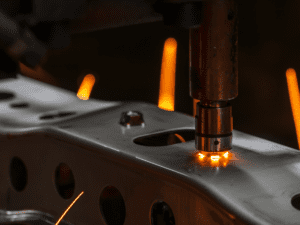
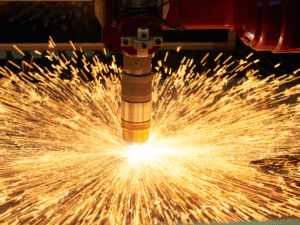
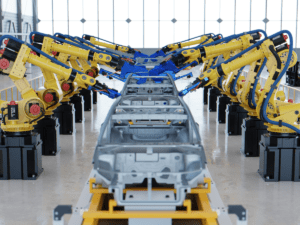
 The landscape of the
The landscape of the 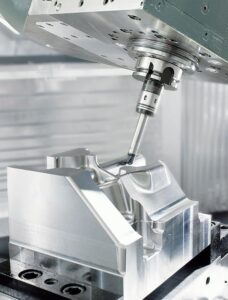 The Fourth Industrial Revolution, also known as Industry 4.0, is the fusion of advanced manufacturing techniques with digital technologies. This transformative era is underpinned by automation, data exchange, and cyber-physical systems. One vital player in this revolution is CNC (Computer Numerical Control) precision machining, an advanced manufacturing method that promises accuracy, repeatability, and superior quality. This blog post will delve into the impactful role of CNC precision machining in Industry 4.0.
The Fourth Industrial Revolution, also known as Industry 4.0, is the fusion of advanced manufacturing techniques with digital technologies. This transformative era is underpinned by automation, data exchange, and cyber-physical systems. One vital player in this revolution is CNC (Computer Numerical Control) precision machining, an advanced manufacturing method that promises accuracy, repeatability, and superior quality. This blog post will delve into the impactful role of CNC precision machining in Industry 4.0.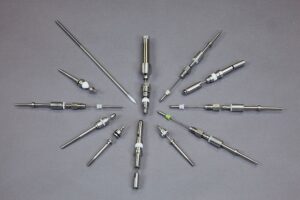 In the world of CNC machining, precision and quality are of utmost importance. To ensure that CNC machine shops maintain high standards in their operations and deliver consistent results, the
In the world of CNC machining, precision and quality are of utmost importance. To ensure that CNC machine shops maintain high standards in their operations and deliver consistent results, the 

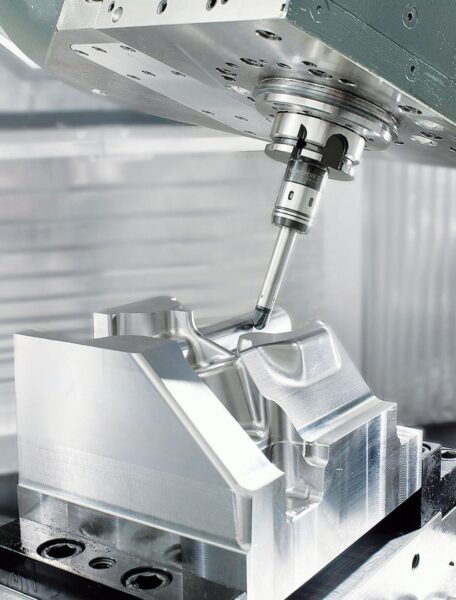 One of the main advantages of CNC precision machining is its ability to produce complex parts with a high degree of accuracy and repeatability. This is especially important in the oil and gas industry, where components must meet stringent specifications and tolerances to ensure safe and reliable operation. By using
One of the main advantages of CNC precision machining is its ability to produce complex parts with a high degree of accuracy and repeatability. This is especially important in the oil and gas industry, where components must meet stringent specifications and tolerances to ensure safe and reliable operation. By using 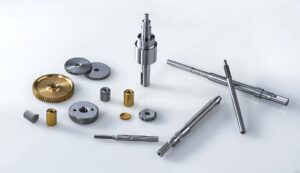 Conventional turbines and generators rely on fossil fuels to generate power for homes all over the country. These units are made up of thousands of components, some of which are huge and some of which are incredibly small. In order to successfully build these machines, highly specific, close-tolerance parts are needed. That’s where CNC manufacturing comes in.
Conventional turbines and generators rely on fossil fuels to generate power for homes all over the country. These units are made up of thousands of components, some of which are huge and some of which are incredibly small. In order to successfully build these machines, highly specific, close-tolerance parts are needed. That’s where CNC manufacturing comes in.